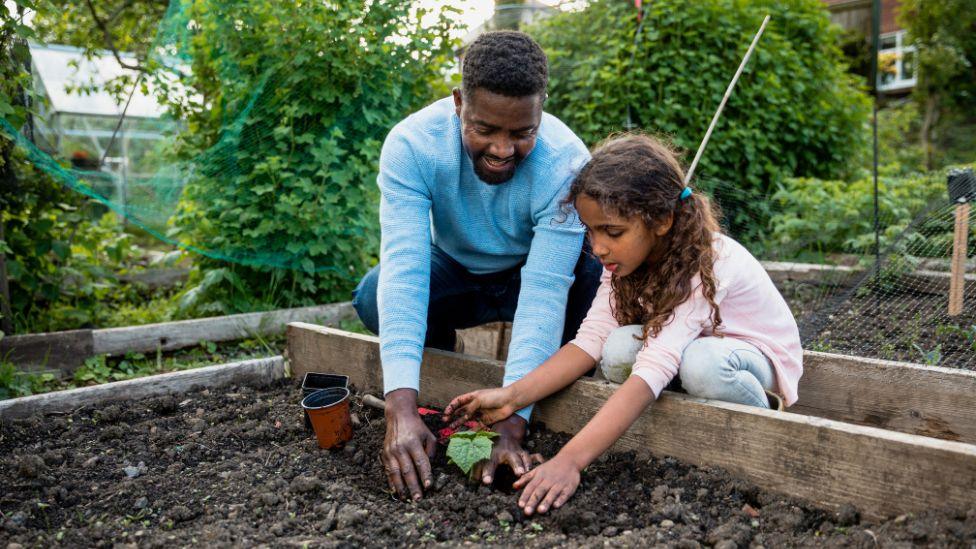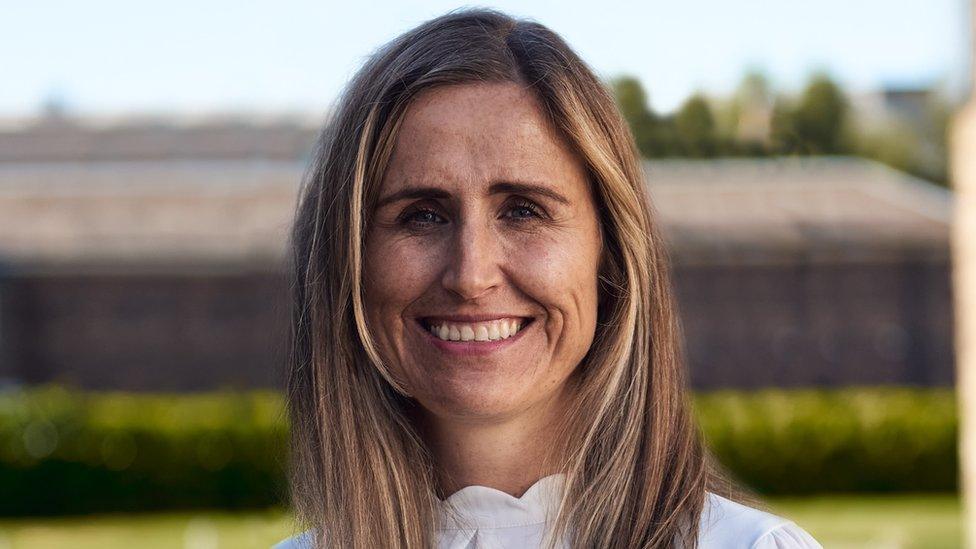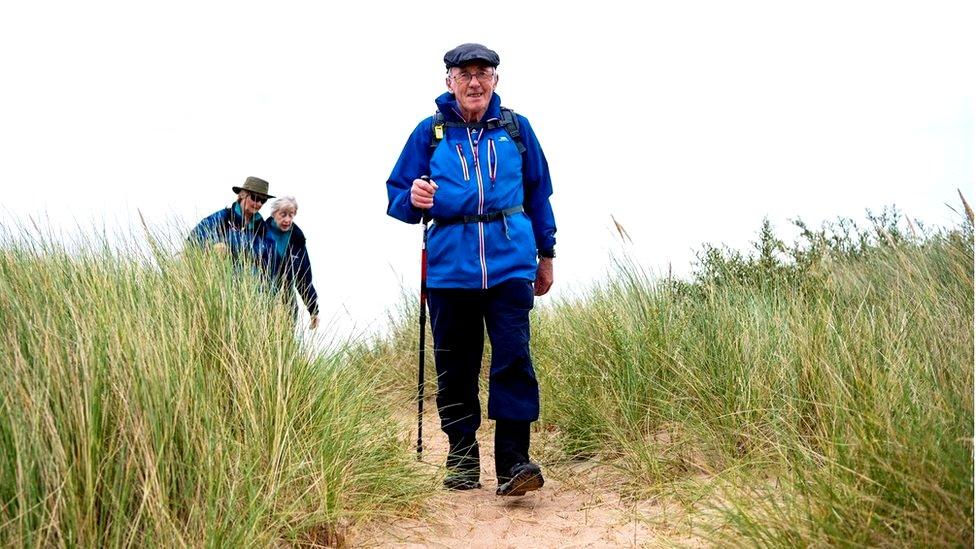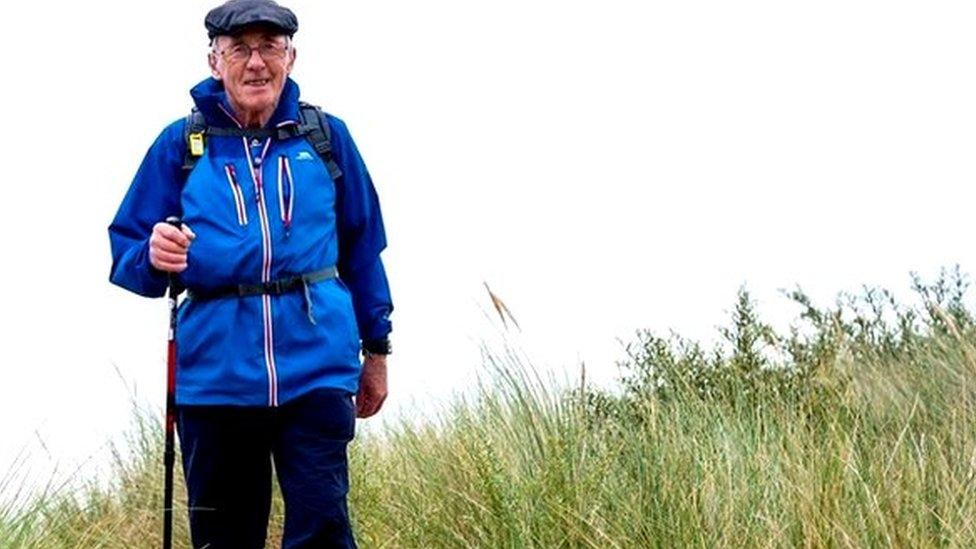Scotland's doctors urged to prescribe gardening and cooking
- Published

GPs can already prescribe patients activities such as gardening, but charities are calling for a new national strategy on social prescribing
Prescribing patients activities such as walking, gardening and cooking can help Scotland tackle health inequality, leading charities have said.
A coalition of 19 organisations are calling on the Scottish government to adopt a national strategy for so-called social prescribing.
It comes after a Holyrood report backed action to combat health inequalities.
The government said it was committed to tackling the issue and supports the use of non-clinical treatments.
Social prescribing involves a range of activities typically provided by voluntary and community sector organisations.
It can include arts, group learning, gardening, befriending, cookery, healthy eating advice and sports, with a particular focus on physical activity.
Exponents said it could help those with poor mental health, long-term health conditions or those with social issues such as loneliness.
A recent report by the Holyrood health, social care and sport committee, external said "urgent" action was required to tackle health inequality in Scotland.
Among its recommendations for health was a proposal to embed community workers into GP surgeries, who can help facilitate social prescribing.
Movement for Health (MFH) – a coalition of charities that includes SAMH, Chest Heart and Stroke Scotland, Age Scotland and Paths for All – supports the committee's recommendations.
Although GPs can already utilise social prescribing, MFH says the government should adopt a national strategy with "co-ordinated and preventative action urgently needed".
MFH chair Dr Emma Lunan said: "If the committee's findings confirm anything it is that tackling health inequalities must be a major public health priority because lives literally depend on it."

Dr Emma Lunan says social prescribing is "undervalued".
She continued: "A bigger investment has to be put on social prescribing.
"The undervalued process can improve outcomes for people by giving them choice and control over their lives and can even improve their sense of belonging when getting involved in community groups.
"Social prescribing has been recognised as a vital tool required post-pandemic to improve the mental and physical health of the country.
"Investing in the process means we can cater and understanding that different areas of Scotland have different needs and require different levels of support."


Jim Snodgrass said the Ramblers has helped with his mental health issues
Jim Snodgrass, from South Queensferry, is among those to have benefitted from a social prescription.
After struggling with mental health issues due to the isolation of lockdown, his doctor prescribed that he join the Ramblers.
Jim told BBC Scotland: "I was surprised when he didn't give me any pills and instead gave me the number for the Ramblers."
He added: "The Ramblers saved me during the last year of lockdowns. I don't know where I would be without them with my nerves.
"Within two miles of walking I'm a different person."

The Scottish government said it was prioritising tackling health inequalities and increasing healthy life expectancy.
A spokesperson said: "We recognise that non-clinical options are an important part of a person-centred approach to care and more can be done to ensure that healthcare professionals feel confident to take these options, where they feel it is appropriate.
"Programme for Government committed that every GP Practice will have access to a mental health and wellbeing service by 2026, with funding for 1,000 additional dedicated staff who can help grow community mental health resilience and direct social prescribing, with funding for the national implementation of these Mental Health in Primary Care Services coming this year."
They added welfare rights advisers were also being embedded in 150 GP practices across Scotland to offer advice to patients on increasing income, social security eligibility, debt resolution, housing and employability issues.
- Published29 April 2021
